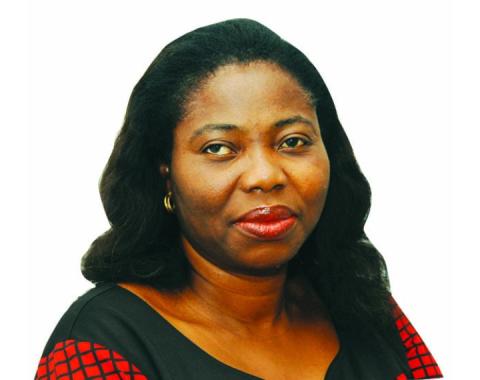
We have serious problems and our leaders should better own up to them. The Nigerian education sector is deep in crisis. We have the issue of lack of standard on one hand and insecurity on the other. This new wave of kidnap of students has added to our baskets of challenges. This is not the time to be talking about cows; our leaders should work with other stakeholders to reverse this current situation to prevent an irrecoverable and catastrophic collapse of the sector.
The way Nigerian leaders talk about cows and goats gives one the impression that these animals are far higher in value than the average citizen. Discourse on cattle is so much elevated above any meaningful discussion on education, technology or development in general. From the look of things, it seems Nigeria’s 18.4 million cattle, its 43.4 million sheep, 76 million goats and 7.5 million pigs are of far more importance than its 10.5million out of school children and hundreds of others in kidnappers’ dens. Somehow, these animals have continued to be objects of national focus in the last five years at the expense of human beings.
In one of my articles in 2019, I described Nigeria as a nation that values cows more than its children and I did say then that If Nigeria gave half of the attention it was giving to cattle to its children, the country would have been on a clear path of sanity and growth. Sadly, in 2021, cattle still remain the nation’s priority while its education sector continues to take a backstage.
The latest of these anomalies in our political system is the consideration of a bill to create a database for cows. A country that relies on foreigners for data on its out-of-school children and that has no idea of its exact population figure is tinkering with the idea of counting herds of cows and sheep. Not only that, it is considering the establishment of a bureaucratic structure to be known as the National Livestock Bureau to look after the interest of animals.

The bill sponsored by Senator Muhammad Enagi Bima representing (APC, Niger South) in the National Assembly is to ensure the protection, control and management of all livestock in Nigeria. According to the proposed law, the agency will be in charge of identification, traceability and registration of livestock such as cows and goats to curb cattle rustling and end the prolonged farmer/herder conflict in the country. According to Bima, livestock accounts for one-third of Nigeria’s agricultural GDP, providing income, employment, meat, milk, leather, farm energy, manure, fuel, and transport, hence the reason why the business should be protected.
When a member of the Senate questioned the competence of the National Assembly in legislating on the livestock industry, which should ordinarily be a private business concern, the President of the Senate, Ahmed Lawan, said any government or parliament should be able to do anything possible to protect an industry of between N5-N10trn.
To Lawan, the parliament’s intervention is based on the Doctrine of Necessity. He said: “Sitting here, I believe that we will be doing this country good; we will be doing justice and a great deal of service to our people that we legislate on this.
“So, based on Standing Order 25(h) which gives me the authority to interpret both our standing orders – the rules and constitutional point of orders – I rule that this Senate and, indeed, the National Assembly, has the legislative competence to legislate on this matter.”
Probably, it would have made better sense to an ordinary Nigerian if the National Assembly had taken time to provide figures of current tax earnings from Nigeria’s cattle and goat business to justify the special attention it is getting. Providing such facts and figures could have at least helped some people to know why, for instance, the poultry business, also an aspect of livestock industry, is not enjoying so much attention in spite of the cries of poultry farmers for helps.
Coincidentally, the senate’s bill seeking to protect cattle was brought up for discussion on a day that Nigeria’s Minister of Finance, Budget and National Planning, Zainab Ahmed, disclosed that about 62,000 of Nigeria’s schools could be easily accessed by external forces. This is in spite of several millions of dollars pledged towards rehabilitation of schools at the launch of the Safe Schools Initiative (SSI) years back. She went ahead to tell us that the Federal Government would come up with a national plan and use it as an instrument to mobile resources. By the way, has anyone wondered why Nigerian leaders always talk about what they will do and not what they have done? They talk about development in future tenses. Insurgency has been with us for over a decade, these criminals have been abducting students and other Nigerians for nearly 10 years, yet we are still planning in 2021 to make provision in our budgets for the safety of the education sector. A Yoruba adage says if it takes 20 years to plan madness, how long would the madness last? More than 10 years into insurgency, our governments are still planning on how to build ordinary fence that can’t even prevent abductions. For how long are we going to wait for them to adopt technology in checking the menace? And our senators don’t see this as an urgent area of intervention in line with its Doctrine of Necessity?
Aside the usual calls on President Muhammadu Buhari to declare a state of emergency on security each time students are abducted from their schools, I haven’t seen any serious move by our lawmakers aimed at halting the existential threat that kidnapping is posing to Nigeria’s education sector. Already, one in every five of the world’s out-of-school children is in Nigeria. Between December 2020 and March 2021, more than 600 children have been kidnapped while in school. Unfortunately, all these incidents happened in the North which is already the most educationally disadvantaged region. Sixty nine per cent of Nigeria’s out-of –school children are from Northern Nigeria. Shouldn’t this be an issue of worry to our lawmakers?
Why are cattle so important to our political elite? Are they the ones behind the cattle business? After all, we know that the herdsmen we see following cows up and down are not the owners of the cows they tend. Rather, they are hired by the cattle owners to feed and protect these animals. Someone once said while India has sacred cows, Nigeria has sacred cow owners. I agree.
What is the real reason behind the desperation every time to protect cattle business and why should we be having conversation on cattle in a National Assembly? There was a time the Miyetti Allah Cattle Breeders Association of Nigeria (MACBAN) had the audacity to ask government for N100bn intervention fund in a country where a paltry N2bn is voted for the take-off of a university. So many good things are eluding Nigeria (Twitter choosing Ghana as first Africa office, Amazon opening African office in South Africa, etc,) because of insecurity, and our senators are out there discussing cows.
I just hope that one day our leaders will stop chasing shadows and start focusing attention to things that really matter, that is, education. Japan kept a rail station open for one girl who used it to travel to high school for three years until she completed her studies. As stated in a previous column, Honduras and Nigeria are in the same category when it comes to corruption. It is a tiny nation and one of the poorest in the Western Hemisphere. But despite its rating as a corrupt country by Transparency International, it had enough sense to help its schoolchildren when it realised that they were not performing well in international tests of academic performance.
Today, the students’ performance has improved tremendously such that a recent UNESCO report comparing student test scores across Latin America shows that Honduran third graders have crept up from fifteenth to tenth place in math and reading. This is what happens when nations take responsibility for the outcome of their education sector.
We have serious problems and our leaders should better own up to them. The Nigerian education sector is deep in crisis. We have the issue of lack of standard on one hand and insecurity on the other. This new wave of kidnap of students has added to our baskets of challenges. This is not the time to be talking about cows; our leaders should work with other stakeholders to reverse this current situation to prevent an irrecoverable and catastrophic collapse of the sector.
Olabisi Deji-Folutile is the Editor-in-Chief of Franktalknow.com and member, Nigerian Guild of Editors. Email: [email protected]